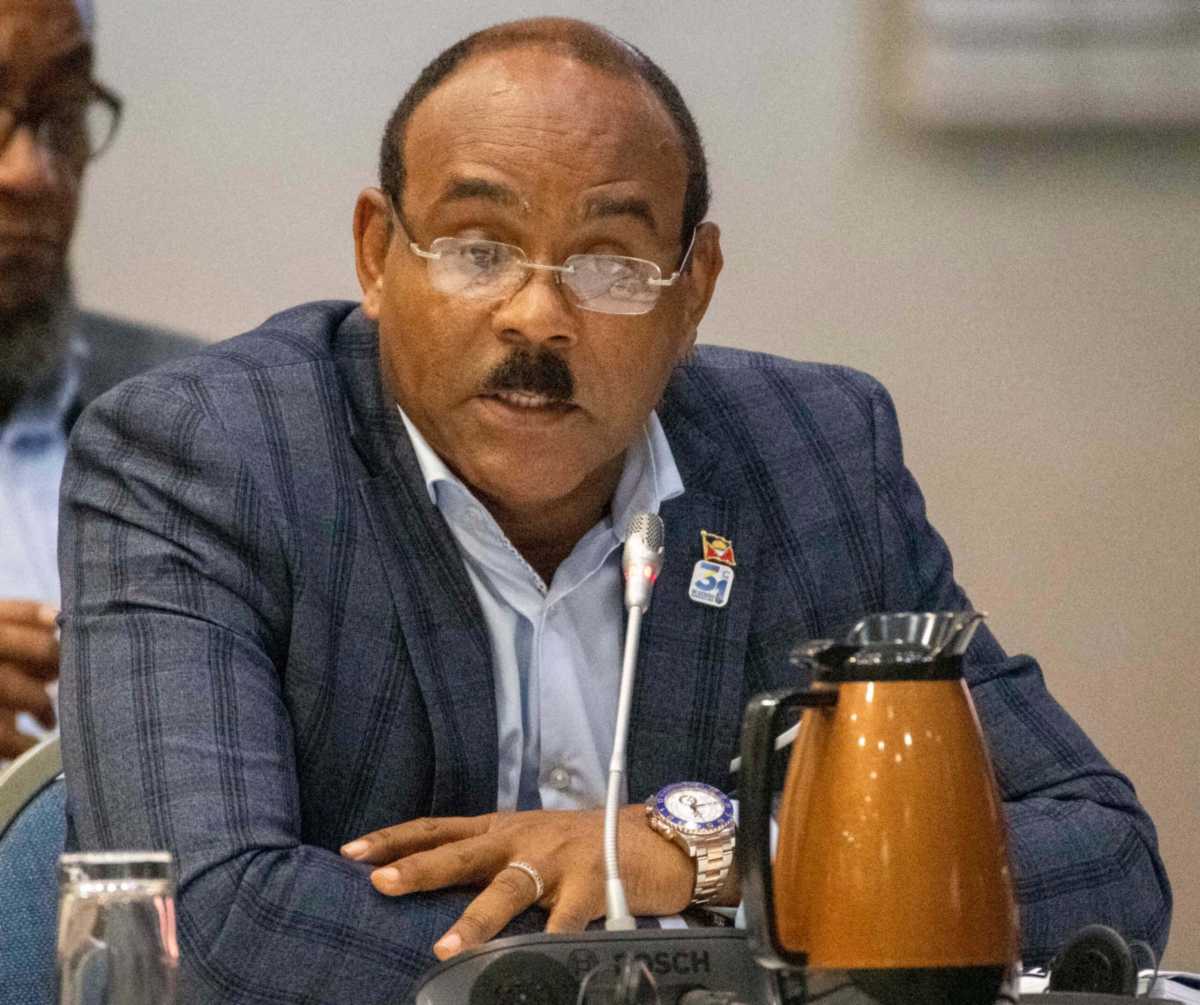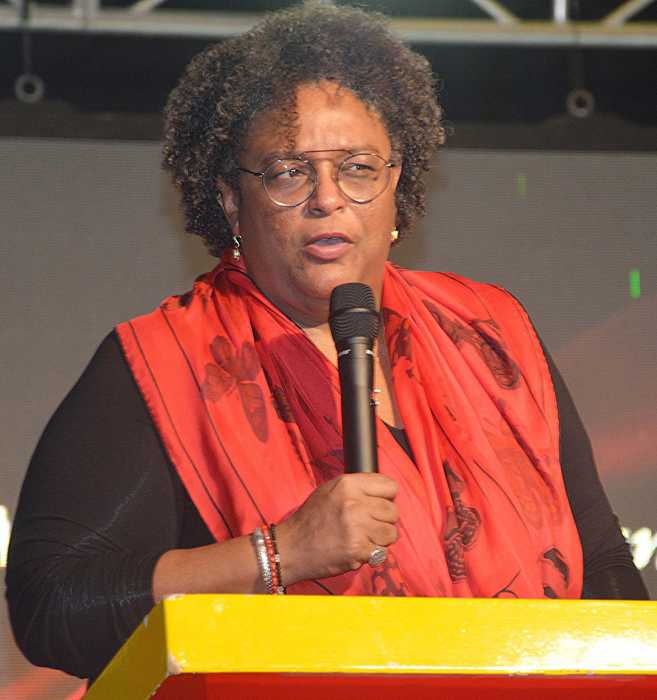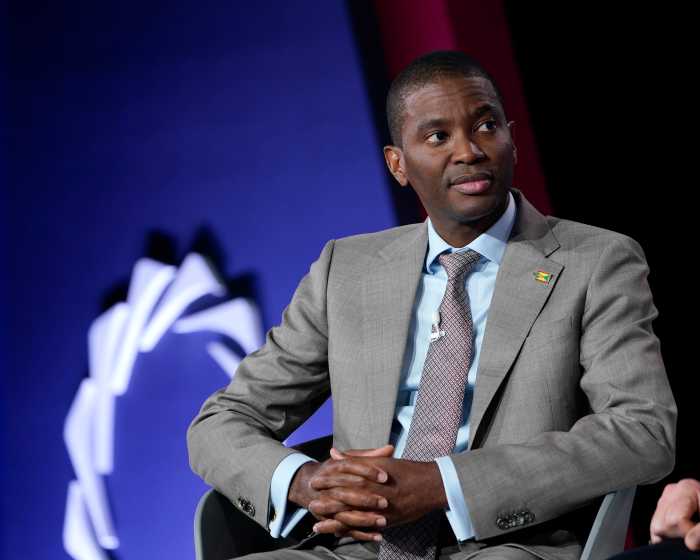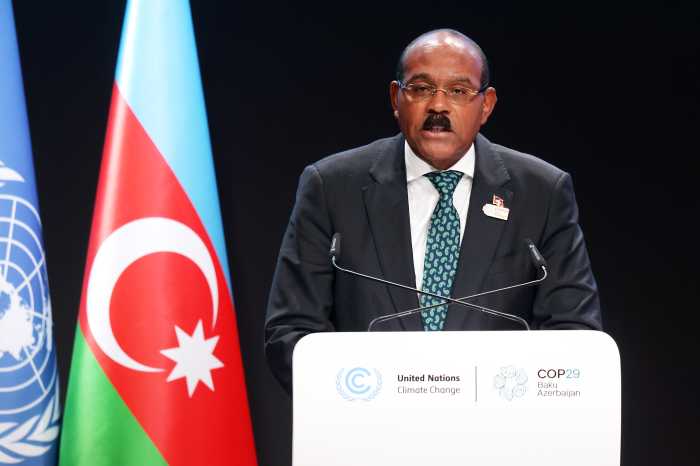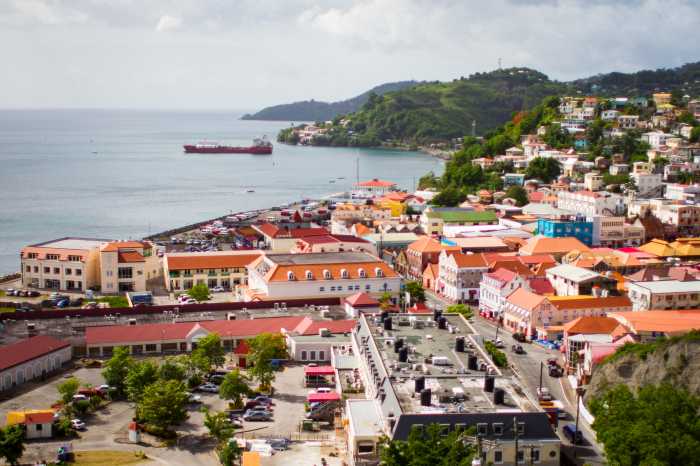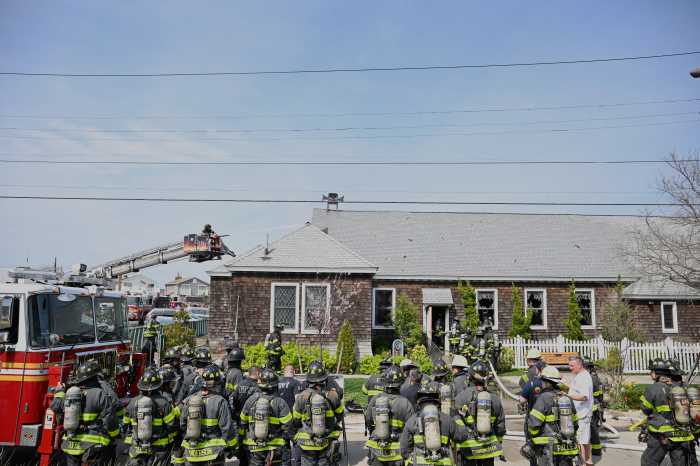Two Caribbean leaders are on Thursday participating in a virtual “Leaders’ Summit on Climate” hosted by United States President Joe Biden.
The White House said Antigua and Barbuda Prime Minister Gaston Browne and his Jamaican counterpart, Andrew Holness, were invited to the two-day summit among 40 world leaders.
The White House noted that President Biden “took action” his first day in office to return the United States to the Paris Agreement on Climate Change.
Days later, on Jan. 27, he announced that he would soon convene a leaders’ summit “to galvanize efforts by the major economies to tackle the climate crisis,” the White House said.
It said that the “Leaders’ Summit on Climate” will underscore the urgency – and the economic benefits – of stronger climate action.
“It will be a key milestone on the road to the United Nations Climate Change Conference (COP26) this November in Glasgow (Scotland),” the statement said.
In recent years, it said scientists have underscored the need to limit planetary warming to 1.5 degrees Celsius in order to stave off the worst impacts of climate change.
“A key goal of both the ‘Leaders’ Summit’ and COP26 will be to catalyze efforts that keep that 1.5-degree goal within reach,” the White House said. “The summit will also highlight examples of how enhanced climate ambition will create good paying jobs, advance innovative technologies, and help vulnerable countries adapt to climate impacts.”
By the time of the summit, the White House said the United States will announce an ambitious 2030 emissions target as its new “Nationally Determined Contribution” under the Paris Agreement.
In his invitation, Biden urged leaders to use the summit as “an opportunity to outline how their countries also will contribute to stronger climate ambition.”
The White House said the summit will reconvene the US-led “Major Economies Forum on Energy and Climate”, which brings together 17 countries responsible for about 80 percent of global emissions and global gross domestic product (GDP).
The US president also invited the heads of other countries that are “demonstrating strong climate leadership, are especially vulnerable to climate impacts, or are charting innovative pathways to a net-zero economy,” the White House said.
It said a small number of business and civil society leaders will also participate in the summit.
The White House said key themes of the summit will include galvanizing efforts by the world’s major economies to reduce emissions during this “critical decade” to keep a limit to warming of 1.5 degree Celsius within reach; and mobilizing public and private sector finance to drive the net-zero transition and to help vulnerable countries cope with climate impacts.
Other key themes will include the economic benefits of climate action, with a strong emphasis on job creation, and the importance of ensuring all communities and workers benefit from the transition to a new clean energy economy; and spurring transformational technologies that can help reduce emissions and adapt to climate change, while also creating enormous new economic opportunities and building the industries of the future.
In addition, the White House said the summit will showcase subnational and non-state actors that are committed to green recovery and an equitable vision for limiting warming to 1.5 degree Celsius, and are working closely with national governments to advance ambition and resilience; and discuss opportunities to strengthen capacity to protect lives and livelihoods from the impacts of climate change, address the global security challenges posed by climate change and the impact on readiness, and address the role of nature-based solutions in achieving net zero by 2050 goals.
An Antigua and Barbuda Government statement said on Thursday that Prime Minister Browne, who will speak during the morning session at the Summit, is expected to make the case for small island states, including the Caribbean Community (CARICOM), which he said are facing “unprecedented challenges at this time to include coping with extraordinary public health demands caused by the COVID-19 pandemic and making preparations for the effects of Climate Change.”
“Since becoming Prime Minister in March 2014, Prime Minister Browne has been a strong voice advocating in international fora, for climate justice for Caribbean states,” the statement said.
As recently as March 29, it said Browne told a Meeting of Heads of State and Government on the International Debt Architecture and Liquidity that Caribbean states “are the least contributors to the greenhouse gases that cause Climate Change, yet they are its greatest casualties”.
Antigua and Barbuda’s delegation to the “Leaders’ Summit on Climate” comprises Health and Environment Minister Sir Molwyn Joseph, Foreign Affairs Minister E. P. Chet Greene, and Antigua and Barbuda’s Ambassador to the United States Sir. Ronald Sanders.
In his opening remarks, US Secretary of State Antony J. Blinken said: “As President Biden and Vice President (Kamala) Harris have made clear, this administration intends to do more than any in US history to meet the climate crisis.
“What the United States can do at home can make a significant contribution toward keeping the Earth’s warming to 1.5 degrees Celsius,” he said. “That’s why we’re raising our ambitions, as the President described, and we will meet the new targets we set.
“But, of course, no country can overcome this existential threat alone,” Blinken added. “We’re in this together. And what each of our nations does or does not do will not only impact people of our own country but people everywhere.
“Many of us, perhaps all of us, feel a strong sense of urgency,” he continued. “That’s why we’re here. We hope that will translate into making the progress necessary during this critical year and over this decisive decade.”
Secretary-General of the United Nations Antonio Guterres thanked Biden for “bringing us together to focus on the existential threat of climate change.
“You have started this summit by walking the talk, and I applaud the commitment of the United States to cut greenhouse gas emissions 50 to 52 percent below [2005] levels,” he said in his opening remarks. “Mother Nature is not waiting. The past decade was the hottest on record. Dangerous greenhouse gases are at levels not seen in 3 million years.
“Global temperature has already risen 1.2 degrees Celsius – racing toward the threshold of catastrophe,” the UN chief added. “Meanwhile, we see ever rising sea-levels, scorching temperatures, devastating tropical cyclones and epic wildfires. We need a green planet — but the world is on red alert.”
Guterres warned that the world is “at the verge of the abyss,” urging: “We must make sure the next step is in the right direction.
“Leaders everywhere must take action,” he said. “First, by building a global coalition for net-zero emissions by mid-century – every country, every region, every city, every company and every industry.
“Second, by making this a decade of transformation,” he added. “All countries – starting with major emitters – should submit new and more ambitious Nationally Determined Contributions for mitigation, adaptation and finance, laying out actions and policies for the next 10 years aligned with a 2050 net-zero pathway.
“Third, we need to translate those commitments into concrete, immediate action,” Guterres continued.


